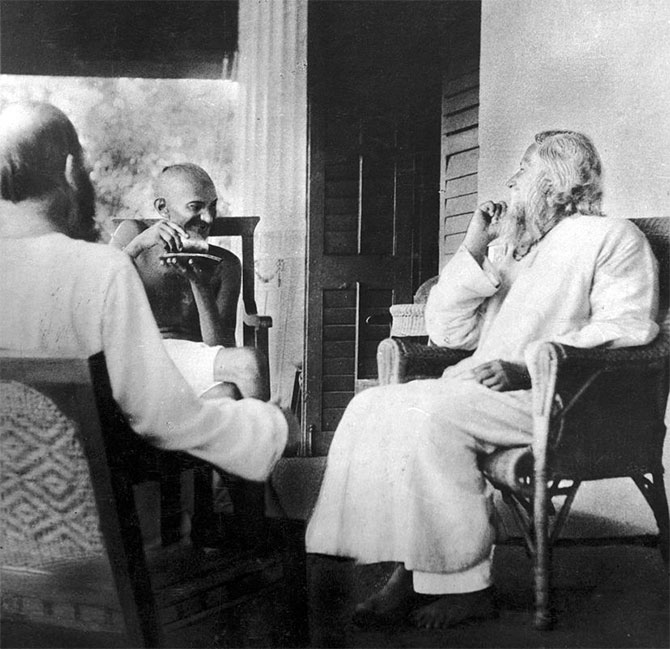prasad1
Active member
Many Englishmen understandably came to India during the British Raj. Some fell in love with this country and stayed back. History remembers only a few of them, says Professor Susanto Das, former head of Rabindra Bharati University's history department.
Of them, C F Andrews, a priest from the Church of England, an educator and social reformer, shines brightest.
In 1904, Andrews joined the Cambridge Mission to Delhi and arrived there to teach at St Stephen's College. Some years before my visit to the cemetry, St Stephen's alumni installed his bust by his grave.
Andrews taught at St Stephen's for ten years and became friends with many of his Indian colleagues and students.
Touched by the social and cultural injustice inflicted upon the Indians by the British, he became a part of the social and political movements of the day, and championed the causes of the labourers, railway workers and other downtrodden.
With his connections among influential people in England, he tried to arouse public opinion against the atrocities inflicted upon the colonised people in India, Fiji, South Africa and other parts of the British empire.
His love and compassion for the poor earned him the affectionate title, Dinabandhu, friend of the poor.

IMAGE: With Mahatma Gandhi and Gurudev Rabindranath Tagore in Shantiniketan, 1925. Photograph: Kind Courtesy, Wikimedia Commons
Andrews first met Gandhi in Durban in January 1914, an encounter encouraged by Gopal Krishna Gokhale, one of the greatest leaders of his time.
Both men developed a strong bond. Andrews was deeply influenced by the Gandhian doctrine of ahimsa, says Gandhian Sailesh Kumar Bandyopadhyay.
Andrews was a key force at Gandhi's ashram in Natal and help the publication of the magazine, The Indian Opinion.
He also convinced Gandhi to return to India from South Africa and initiate a movement against British oppression in his mother country.
He then took upon himself the task of interpreting Gandhi to the West. He kept open the possibility of a dialogue between the Indian leaders and the British government, says Bandyopadhyay.
http://www.rediff.com/news/special/the-englishman-who-was-more-indian-than-indians/20160811.htm
Of them, C F Andrews, a priest from the Church of England, an educator and social reformer, shines brightest.
In 1904, Andrews joined the Cambridge Mission to Delhi and arrived there to teach at St Stephen's College. Some years before my visit to the cemetry, St Stephen's alumni installed his bust by his grave.
Andrews taught at St Stephen's for ten years and became friends with many of his Indian colleagues and students.
Touched by the social and cultural injustice inflicted upon the Indians by the British, he became a part of the social and political movements of the day, and championed the causes of the labourers, railway workers and other downtrodden.
With his connections among influential people in England, he tried to arouse public opinion against the atrocities inflicted upon the colonised people in India, Fiji, South Africa and other parts of the British empire.
His love and compassion for the poor earned him the affectionate title, Dinabandhu, friend of the poor.

IMAGE: With Mahatma Gandhi and Gurudev Rabindranath Tagore in Shantiniketan, 1925. Photograph: Kind Courtesy, Wikimedia Commons
Andrews first met Gandhi in Durban in January 1914, an encounter encouraged by Gopal Krishna Gokhale, one of the greatest leaders of his time.
Both men developed a strong bond. Andrews was deeply influenced by the Gandhian doctrine of ahimsa, says Gandhian Sailesh Kumar Bandyopadhyay.
Andrews was a key force at Gandhi's ashram in Natal and help the publication of the magazine, The Indian Opinion.
He also convinced Gandhi to return to India from South Africa and initiate a movement against British oppression in his mother country.
He then took upon himself the task of interpreting Gandhi to the West. He kept open the possibility of a dialogue between the Indian leaders and the British government, says Bandyopadhyay.
http://www.rediff.com/news/special/the-englishman-who-was-more-indian-than-indians/20160811.htm
